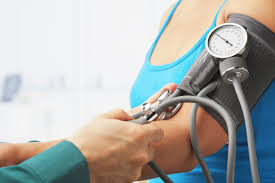Source: timesnownews.com
New Delhi: While hypertension is more prevalent among the elderly, it has become an increasing trend among young adults in recent times. Hypertension or high blood pressure is a major risk factor for cardiovascular disease. Currently, Indians experience cardiovascular deaths at least a decade earlier than people in developed countries. The increased prevalence of traditional risk factors in the young population including obesity, diabetes and renal disease increase the risk of developing hypertension.
Psychosocial factors like stress, work pressure, anxiety and substance abuse like smoking, chewing tobacco and excess alcohol intake also contribute to hypertension in youngsters. Urbanization, change in diet and lower levels of physical activity are some of the major factors contributing to the rise of high blood pressure.
Hypertension in young adults
Hypertension in young may be of two types – primary or secondary, but more than 90 per cent are seen to have primary hypertension. Primary hypertension has no specific cause. It is often associated with a family history of hypertension, obesity or metabolic syndrome. Secondary hypertension can be due to renal and hormonal causes, etc. “Most young patients are asymptomatic and diagnosed during screening or when presented with an unrelated condition, and only a minority present with a hypertensive emergency,” said Dr Ravindranath Reddy DR, senior consultant, Interventional Cardiologist at BGS Gleneagles Global Hospital, Bengaluru.
Untreated hypertension damages the heart and other organs. It can lead to life-threatening conditions like heart attack, stroke and kidney damage. Hypertension is often called a silent killer because symptoms generally appear only after the disease has caused end-stage organ damage. The narrowing and blocking of blood vessels caused by high blood pressure increase the risk of developing heart failure.
High blood pressure forces the heart to work harder than necessary in order to pump blood to the rest of the body. This causes the left ventricle to thicken or stiffen (left ventricular hypertrophy). These changes limit the ventricle’s ability to pump blood to your body. This increases one’s risk of heart attack, heart failure, and sudden cardiac death. Hence, this increasing trend of hypertension in the young people calls for early surveillance and prompt treatment to prevent future cardiac events.
How to prevent and control high blood pressure
Below are some simple measures you can take to help prevent or manage hypertension:
- Avoid smoking and tobacco
- Lose weight if you’re overweight
- Get 30 minutes of moderate-intensity aerobic activity at least five days per week
- Eat a healthy diet consisting of fruits, vegetables, whole grains, and low-fat dairy products with reduced content of saturated and total fat
- Minimise your salt intake
Young adults aged <40 years should be educated about the association between body weight and hypertension. Particular caution surrounding lifestyle habits, including drinking and smoking, is warranted. It is an area where major health gains can be made through the implementation of primary care interventions and basic public health measures that target diet, lifestyle and environment.
